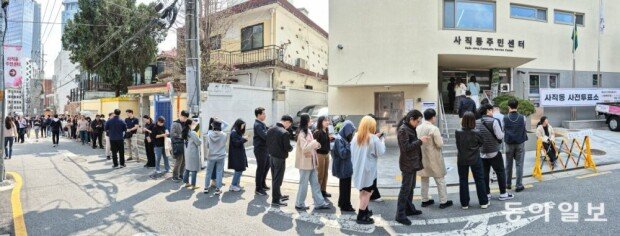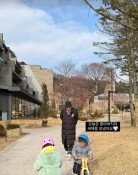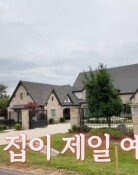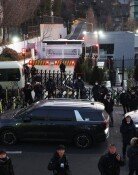6 million people vote on first day of early voting
6 million people vote on first day of early voting
Posted April. 06, 2024 07:52,
Updated April. 06, 2024 07:52

The voting rate was 12.60 percent as of 4 p.m. on Friday, the first day of early voting for the April 10 general elections. It is the highest figure for the first day of early voting among all general elections and 2.86 percentage points higher than the same time for the 21st general elections four years ago. Compared to the highest-ever early voting rate recorded among nationwide elections, which was for the 2022 presidential election, it was 1.51 percentage points lower. With the current trend, it may be possible to reach an early voting rate of 36.9 percent, which was the record of the presidential election.
According to the National Election Commission, 4,922,548 out of 44,280,011 voters voted on Friday. Experts believe that the high early voting rate is due to voters’ perspective of early voting as an extension of the main voting and the unity among supporters of each party. The three-day voting period began on Friday, including two days of early voting.
The voting rate in Seoul, where the Han River belt expected to be the most competitive is located, had the same voting rate as the nationwide figure, which was up three percent over the last general elections. Gyeonggi Province and Incheon had a voting rate of one percentage point lower voting rate than the nationwide rate but was still three percent higher than the previous general elections. It seems to result from stronger unity among supporters of respective parties, with a sharp increase in early voting rates in Seoul and nearby regions where 122 seats are at stake, among a total of 254 seats. In addition, the voting rate in Pusan and South Gyeongsang Province, where the Nakdong River belt, another competitive region, is located, saw a two to three percent increase compared to the last general elections. The biggest increase in the early voting rate was seen in the Jeolla provinces, while Dague recorded the lowest early voting rate in the country.
“People are heading to voting centers as the divide between the progressive and conservative and the resulting conflicts between ideologies and political camps have intensified since 2017,” said Professor Kim Hyeong-joon of the Department of Political Science at Myongji University. “However, the assumption that a high early voting rate means a high overall voting rate was broken during the last presidential election. The final results need to be waited,” he added. “As in previous elections, progressive voters are uniting through early voting while more conservative supporters also opted for early voting with the encouragement of the People Power Party, which drove up the overall early voting rate,” Professor Lee Joon-han of the Department of Political Science and Diplomacy at Incheon National University explained.
The ruling and opposition parties called for unity among their supporters, arguing that a higher early voting rate is advantageous to them. “We are expecting the overall voting rate to be higher as the early voting rate is high,” said Lee Jae-myung, the leader of the Democratic Party of Korea, after he completed early voting in Daejeon on Friday morning. The opposition party set a voting rate target of 71 percent, which is the highest in its history. “A high early voting rate isn’t necessarily advantageous to the Democratic Party anymore,” said Hong Seok-joon, the head of the People Power Party’s general situation department of the central election response committee, to reporters at the National Assembly.
Sung-Hwi Kang yolo@donga.com







